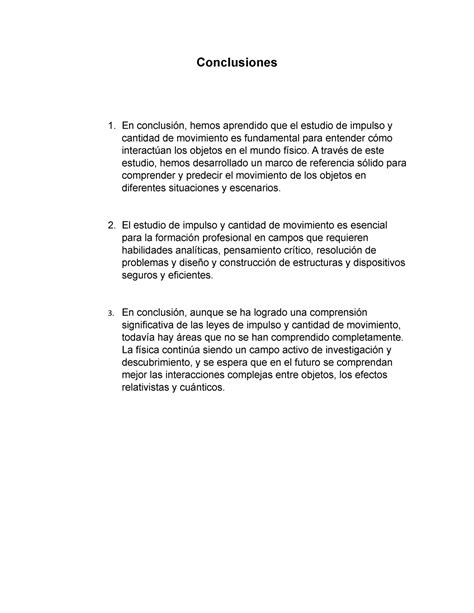Intro
Discover 5 effective ways to beat breast cancer, including prevention methods, early detection techniques, and holistic treatments, to boost survival rates and combat this devastating disease with targeted therapies and supportive care.
Breast cancer is a devastating disease that affects millions of women worldwide. It is a leading cause of cancer-related deaths among women, and its impact is felt not only by the patients but also by their families and loved ones. Despite the grim statistics, there is hope for those diagnosed with breast cancer. Advances in medical technology and research have led to the development of effective treatments and strategies to beat the disease. In this article, we will explore five ways to beat breast cancer, from early detection and diagnosis to innovative treatments and lifestyle changes.
The importance of breast cancer awareness cannot be overstated. By understanding the risks and symptoms of breast cancer, women can take proactive steps to protect themselves and their loved ones. Breast cancer can affect anyone, regardless of age, ethnicity, or socioeconomic status. However, certain factors, such as family history, genetic mutations, and lifestyle choices, can increase a woman's risk of developing the disease. By being aware of these risk factors and taking steps to mitigate them, women can reduce their chances of developing breast cancer.
Breast cancer is a complex and multifaceted disease, and beating it requires a comprehensive approach that involves medical treatment, lifestyle changes, and emotional support. While medical treatment is essential for eliminating the cancer cells, lifestyle changes and emotional support can help women cope with the physical and emotional side effects of the disease. By combining these approaches, women can increase their chances of beating breast cancer and living a long and healthy life.
Early Detection and Diagnosis

Regular screening is essential for early detection and diagnosis. The American Cancer Society recommends that women aged 40 to 44 should have the option to start annual screening, while women aged 45 to 54 should have annual screening. Women aged 55 and older should have biennial screening or continue annual screening, depending on their preferences and health history. By getting regular screenings, women can detect breast cancer early and increase their chances of beating the disease.
Benefits of Early Detection
The benefits of early detection and diagnosis cannot be overstated. When breast cancer is detected early, treatment is more effective, and the chances of survival are higher. Early detection also reduces the risk of the cancer spreading to other parts of the body, which can make treatment more challenging. Additionally, early detection and diagnosis can help women avoid more aggressive treatments, such as chemotherapy and radiation therapy, which can have significant side effects.Innovative Treatments

One of the most promising innovative treatments for breast cancer is immunotherapy. Immunotherapy involves using medications that stimulate the immune system to attack cancer cells. This approach has shown significant promise in clinical trials, with some women experiencing complete remission. Another innovative treatment is targeted therapy, which involves using medications that target specific molecules involved in the growth and spread of cancer cells. This approach has also shown significant promise, with some women experiencing significant reductions in tumor size.
Types of Innovative Treatments
There are several types of innovative treatments for breast cancer, including: * Targeted therapies: These involve using medications that target specific molecules involved in the growth and spread of cancer cells. * Immunotherapies: These involve using medications that stimulate the immune system to attack cancer cells. * Hormone therapies: These involve using medications that block the production of hormones that fuel the growth of cancer cells. * Stem cell therapies: These involve using stem cells to repair damaged tissue and promote healing. * Gene therapies: These involve using genes to repair damaged cells and promote healing.Lifestyle Changes

One of the most important lifestyle changes for breast cancer prevention is maintaining a healthy weight. Being overweight or obese can increase a woman's risk of developing breast cancer, so maintaining a healthy weight through diet and exercise is essential. Another important lifestyle change is getting enough sleep. Sleep deprivation can weaken the immune system and increase the risk of breast cancer, so getting at least 7-8 hours of sleep per night is essential.
Benefits of Lifestyle Changes
The benefits of lifestyle changes cannot be overstated. A healthy diet, regular exercise, and stress management can help women reduce their risk of developing breast cancer and improve their chances of survival. Lifestyle changes can also help women manage the physical and emotional side effects of breast cancer treatment, such as fatigue, nausea, and anxiety. Additionally, lifestyle changes can help women maintain their overall health and well-being, which is essential for beating breast cancer.Emotional Support

One of the most important types of emotional support for breast cancer patients is counseling. Counseling involves meeting with a mental health professional to discuss feelings, concerns, and fears. Counseling can help women manage the emotional side effects of breast cancer treatment, such as anxiety, depression, and trauma. Another important type of emotional support is peer support. Peer support involves meeting with other women who have breast cancer to share experiences, advice, and support.
Types of Emotional Support
There are several types of emotional support for breast cancer patients, including: * Counseling: This involves meeting with a mental health professional to discuss feelings, concerns, and fears. * Peer support: This involves meeting with other women who have breast cancer to share experiences, advice, and support. * Family support: This involves receiving support and guidance from family members. * Friend support: This involves receiving support and guidance from friends. * Online support: This involves joining online communities or forums to connect with other women who have breast cancer.Conclusion and Next Steps

We invite you to share your thoughts and experiences with breast cancer in the comments section below. If you have been diagnosed with breast cancer, we encourage you to seek support from family, friends, and healthcare professionals. You can also join online communities or forums to connect with other women who have breast cancer. Remember, beating breast cancer is possible, and with the right approach, you can increase your chances of survival and live a long and healthy life.
What are the symptoms of breast cancer?
+The symptoms of breast cancer include a lump or thickening in the breast, changes in the size or shape of the breast, and changes in the skin over the breast, such as dimpling or puckering.
How is breast cancer diagnosed?
+Breast cancer is diagnosed using a combination of physical examination, imaging tests, and biopsy. Imaging tests include mammography, ultrasound, and MRI, while biopsy involves removing a sample of tissue from the breast to examine for cancer cells.
What are the treatment options for breast cancer?
+The treatment options for breast cancer include surgery, radiation therapy, chemotherapy, hormone therapy, and targeted therapy. The choice of treatment depends on the stage and type of breast cancer, as well as the woman's overall health and preferences.
Can breast cancer be prevented?
+While breast cancer cannot be completely prevented, there are steps that women can take to reduce their risk. These include maintaining a healthy weight, getting regular exercise, and avoiding alcohol and tobacco.
What is the prognosis for breast cancer?
+The prognosis for breast cancer depends on the stage and type of cancer, as well as the woman's overall health and response to treatment. Generally, the earlier breast cancer is diagnosed and treated, the better the prognosis.
